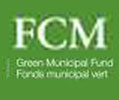 |
||||||||||||||||||||||||
| Subscribe | Past Issues | www.cwwa.ca | Water Source Magazine | ||||||||||||||||||||||||
|
CWWA News
I’ve got that old Barry Manilow song stuck in my head as I sadly announce that we must cancel the National Water & Wastewater Conference for 2020. We have no crystal ball, but it seems more likely every day that we will face a second and third wave of this virus this coming fall and winter. Restrictions on travel and on large gatherings are expected to continue until at least the end of the year. As our priority is on the health of our members and the safe continuity of water services across Canada. Cancellation became the only viable option. I really want to thank our partners at the Sheraton on the Falls in Niagara for working with us so closely and allowing us to just re-book with them for 2022. So the next time we can get together for this national event is November 2021 in Halifax, then November 2022 in Niagara. We’re excited to announce that two new speakers will be joining the virtual Window on Ottawa, which is being held in conjunction with the 2020 Canadian Water Summit on June 11, 2020.
CWWA is pleased to release these two new guidance documents related to COVID-19 and the re-opening of buildings. We trust you will find them very relevant and helpful in your efforts to work with your local building owners and operators.
I have always laughed at the fact that the most-read news clippings we ever share in the Bulletin are the one’s that mention a dead body in the sewers. So I was delighted to be contacted by fiction writer John Seldon with a murder mystery centred around a body found in the sewers. John’s technical references are spot on, as he was a wastewater professional before he was a writer of mysteries. I asked long time CWWA member and contributor Paul Drca to read the book and let us all know what he thought. Thanks Paul, and congratulations John for being able to blend your two professions. - Robert CWWA’s WaterSource magazine did not correctly list all the authors for the article “Building better Cities through the power of research: Strategic partnerships allow translation of cutting-edge research to help municipalities solve their most pressing problems”. Please find the correct attribution below.
Federal Initiatives
With the ongoing COVID-19 situation the Government of Canada is adjusting reporting deadlines under some regulatory requirements to accommodate reduced staff and diverted resources. Environment Canada recently shared that they are changing the National Pollutant Release Reporting Inventory (NPRI) to July 31. A formal announcement is expected in the Canada Gazette in early May, but NPRI are reaching out to all known reporters to advise them of the change. Pursuant to subsection 4.1(4) of the Fisheries Act, the government has given notice that the Minister of the environment is making available for a 60-day comment period prior to implementation of the Administrative agreement between the government of Saskatchewan and the government of Canada regarding the administration of the Wastewater Systems Effluent regulations in Saskatchewan. Member News
FCM is offering new grants to help municipalities strengthen their asset management practices, thanks to a renewed federal investment in FCM’s Municipal Asset Management Program announced in the 2019 federal budget. Doubling down on this federal-municipal partnership will enable funding support for hundreds more municipal projects, mostly in smaller and rural communities.
The Walkerton Clean Water Centre (WCWC) recently completed a pilot testing project with Wauzhushk Onigum Nation, helping the community address a long-term boil water advisory that has been in place since 2012.
FCM has announced a new $300 million initiative to aid municipalities and their partners to implement innovative financing programs that directly support homeowners to reduce their energy bills and cut their greenhouse gas emissions. GMF’s Community Efficiency Financing initiative has opened the first of two calls for applications to help municipalities deliver energy efficient financing programs for low-rise residential properties, including Property Assessed Clean Energy (PACE) models and utility on-bill financing. Apply by June 30, 2020 to access funding to capitalize new programs and scale. Provincial News
This proposed legislation aims to protect critical infrastructure from illegal incursions and unlawful protests. Among other things, it designates pipelines, processing plants, refineries, roads, mines, oil production sites, oil sands sites, pits, quarries, storm drainage systems, telecommunication lines, transmission lines, waste management facilities, wastewater systems, watercourses, highways, transportation systems, railways, power plants, agricultural operations, as essential infrastructure.
Snippings & Clippings
Water Canada Canada and the United States have invested more than US$22.8 billion over the last 35 years to restore Areas of Concern throughout the Great Lakes, according to a new study. The study, published in the Journal of Great Lakes Research, found that the money has been well-spent. Every dollar that was invested in cleanup catalyzed more than $3 worth of community revitalization. Water Canada Environmental biologists at the University of Stirling have warned that the potential spread of COVID-19 via sewage “must not be neglected” in the battle to protect human health. The response to the global pandemic has focused on preventing person-to-person transmission. However, environmental biologists at the University of Stirling now believe the virus could also be spread through wastewater. The Water Network A promising approach to establishing a circular water economy and improved technologies requires active involvement and collaboration from all members of society AWWA Articles Students and teachers at a rural elementary school in Washington are now safe to sip from onsite water fountains, thanks to a Community Engineering Corps (CECorps) project completed by the Pacific Northwest Section of the American Water Works Association (PNWS-AWWA). Water Canada A new wastewater operations training program aims to improve water and wastewater management and treatment throughout the textile supply chains around the world. The training program was developed through a collaboration between the Water Environment Federation (WEF), the ZDHC Roadmap to Zero Programme, and Nike. Water Canada Over the past 18 months, there has been a great deal of conversation regarding the importance of removing lead infrastructure in Canada: the lead up to, and release of, the new Health Canada guideline, the mainstream media investigation and coverage in the fall, and the industry response in the months that followed. Bloomberg Law The coronavirus pandemic is endangering a $900 million program that underpins Ohio Gov. Mike DeWine’s long-term strategy for shrinking the annual massive toxic algae blooms in Lake Erie’s western basin. Water Canada What’s holding us back from replacing lead pipes in Canada? What are some tools that can be used to incentivize and accelerate the replacement of lead pipes? These are a couple of the many important questions that stakeholders across Canada are asking to ultimately ensure that residents have access to safe, clean drinking water. Solutions are available to help communities efficiently and effectively replace lead infrastructure. Before we dive into the solutions, let’s look at the bigger picture. Water Canada Delivering water to city dwellers can become far more efficient, according to Rice University researchers who said it should involve a healthy level of recycled wastewater. “All the technologies needed to treat wastewater to drinking water quality are available,” said Qilin Li, an environmental engineer at Rice University and corresponding author of the study that appeared in Nature Sustainability. “The issue is that today, they’re still pretty expensive. So a very important part of the paper is to look at how cheap the technology needs to become in order for the whole thing to make sense financially and energy-wise.” Water Online Writing a technical article during these unprecedented times of COVID-19 pandemic has proved to be a challenging task. While government officers and health professionals are risking their lives to alleviate this grave pandemic, many of the water professionals are required to follow stay-at-home orders for keeping families and societies safe. Considering the extent and gravity, no doubt this epidemic will have long-lasting effects on our lives. The post-COVID era will see many changes in how the water profession operates. This article is an attempt to provide an overview of possible impacts on the water industry and the potential ways for sector recovery as nations deal with the disease at several levels. Canadian Consulting Engineer Fredericton’s city council has chosen to postpone two infrastructure renewal projects that were scheduled for this spring and summer, due to the COVID-19 pandemic. The planned projects on Regent Street (between Queen and King Streets) and on Union Street have been deferred. They will be replaced by two other reconstruction projects, at the same combined cost of $1 million, that will have less impact on businesses and residents: one on St. Mary’s Street, from the Northside City Works Depot to Two Nations Crossing, and another on Terrance Street from Brookside Drive to Harley Avenue. Construct Connect Like the rest of us, Canadian water and wastewater organizations are having to adjust to COVID-19 as the pandemic continues to impact the country. For example, the Regional District of Okanagan-Similkameen (RDOS) in southern British Columbia asked its residents recently to not flush sanitizing wipes down the toilet or pour fats, oil and grease (known as FOG) down the drain. Water Online Even as the COVID-19 pandemic keeps millions of people home and many businesses shuttered for social distancing, up to 62 million essential workers are still reporting to their jobs in hospitals, grocery stores, and other critical industries. They are on the frontlines against the coronavirus, vital to our public health and economic survival. Of them, the 17 million workers who operate and maintain our infrastructure are among the most essential — delivering our packages, keeping our water running, ensuring our broadband is up to speed, and more. |
||||||||||||||||||||||||








